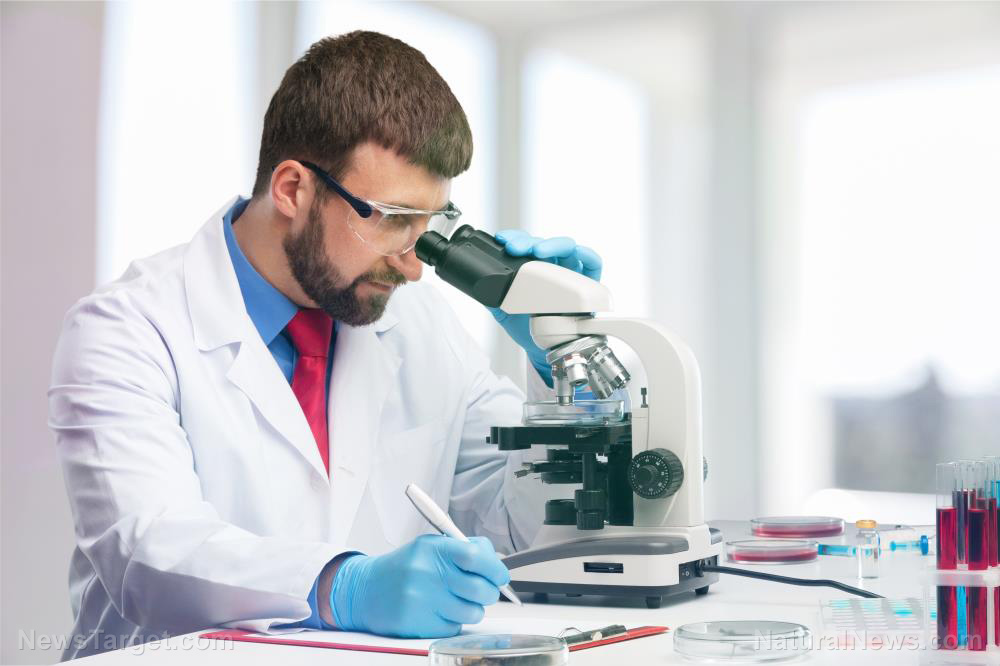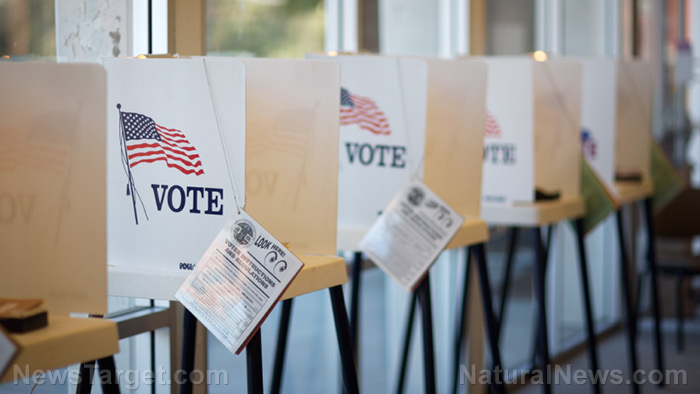Coronavirus RT-PCR tests are being used to mislead people amid the pandemic, says health expert
10/18/2021 / By Zoey Sky

A health expert warns that the Wuhan coronavirus (COVID-19) reverse transcription-polymerase chain reaction (RT-PCR) tests are over-sensitive and that relying on them will cause more harm than good.
According to Dr. Pascal Sacre, RT-PCR tests aren’t usually performed on a patient who is overheated, coughing or has an inflammatory syndrome because it is a laboratory, molecular biology technique of gene amplification that looks for gene traces (DNA or RNA) by amplifying them.
Sacre urged countries to reconsider their over-reliance on misleading and over-sensitive RT-PCR tests instead of focusing on the real clinical state of a person, which clearly differentiates someone who is sick and someone who is experiencing symptoms.
He noted that under normal circumstances, health professionals start by examining a patient and taking notes of symptoms and objective clinical signs. Only after such careful considerations should experts prescribe tests. But the examination doesn’t end with testing. Sacre said that health experts should also compare test results with the patient’s clinical condition, which should be a priority when making decisions and finalizing treatments.
However, governments are forcing doctors to do the opposite and conduct a hypersensitive test on people first before a clinical reflection.
An asymptomatic person shouldn’t be tested until experts have a better rationale for PCR screening. Sacre emphasized that an asymptomatic person shouldn’t automatically be tested if they can self-isolate for at least seven days.
Sacre hopes that a properly informed public can call for immediate action to stop RT-PCR tests that are misleading, over-sensitive and are being abused by those in power and those who will profit from unnecessary testing.
RT-PCR is a nuclear-derived method used to detect the presence of specific genetic material in any pathogen like a virus. It is a variation of PCR test. The two techniques use the same process, but RT-PCR includes an extra step: reverse transcription of RNA to DNA for amplification.
PCR is used for pathogens like viruses and bacteria that already contain DNA for amplification, while RT-PCR is used for those containing RNA that have to be transcribed to DNA for amplification. Both techniques can be performed in “real time” or have results that are visible almost immediately.
Inventor of PCR test said it is a bad diagnostic tool for viral infection
Chemist Kary Mullis developed the PCR technique in 1986, and he received the Nobel Prize in Chemistry in 1993 for it. Mullis reportedly said that while the PCR “was a good tool for research, it was a very bad tool in medicine,” particularly when used as a diagnostic tool for a viral infection.
Mullis died in August 2019, four months before the first reported case of COVID-19.
Interestingly, RT-PCR does not actually reveal any virus – only parts or specific gene sequences of it. Researchers are continuously monitoring the evolution of the SARS-CoV-2 viral genome as it evolves and mutates. (Related: Patients aren’t being told what “variant” they’re infected with; no diagnostic tests in the field are even capable of determining variants.)
With a few specific genes from the SARS-CoV-2 genome, you can initiate RT-PCR on a sample from the respiratory tract. When testing someone suspected to have coronavirus, entry points are nasopharyngeal (nose) and oropharyngeal (mouth) and the sample should be taken from the upper respiratory tract as deeply as possible to avoid contamination by saliva.
Sample collection for RT-PCR test is very painful
But most patients who have undergone testing said that the procedure for sample collection is very painful, especially since swabs are taken from the nasopharynx, the upper part of the throat just behind the nose. Patients have reported that the tests can trigger nausea or vomiting.
Besides medicine, RT-PCR tests are also used in other fields like genetics, forensics and research. The tests must be conducted in a specialized laboratory and can’t be done in ill-equipped laboratories or hospitals. This makes RT-PCR tests more expensive, and there are often delays of several days between the sample and the result.
Because of the coronavirus pandemic, the RT-PCR diagnostic technique is used to define positive cases. Most of the time, positive cases are considered coronavirus cases and patients are often hospitalized or admitted to intensive care units (ICUs).
A deluge of positive RT-PCR tests is often used to justify draconian measures like lockdowns, travel bans and even mandatory vaccinations.
Visit Deception.news for more articles about the misuse of RT-PCR and PCR tests.
Sources include:
Tagged Under: big government, conspiracy, coronavirus testing, covid-19 pandemic, deception, disinfo, Government Slaves, infections, Medical Tyranny, pandemic, polymerase chain reaction, RT-PCR, Wuhan coronavirus
RECENT NEWS & ARTICLES
COPYRIGHT © 2018 DECEPTION.NEWS
All content posted on this site is protected under Free Speech. Deception.news is not responsible for content written by contributing authors. The information on this site is provided for educational and entertainment purposes only. It is not intended as a substitute for professional advice of any kind. Deception.news assumes no responsibility for the use or misuse of this material. All trademarks, registered trademarks and service marks mentioned on this site are the property of their respective owners.





















